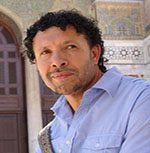What will it take to overcome food insecurity in MENA?
Webinar
October 31, 2022
Summary
The Middle East Council on Global Affairs in Doha (Council), in partnership with the Arab Barometer, hosted a webinar discussion on October 31, 2022 about the growing challenge of food insecurity in the Middle East and North Africa (MENA) region. Food insecurity is projected to intensify in the coming years, over-and-above the political and economic crises some MENA countries are facing. During the webinar, experts assessed the drivers of food insecurity and evaluated potential policy solutions. Larbi Sadiki, senior fellow at the ME Council, moderated the discussion. The distinguished panelists included Ayman F. Abou Hadid, professor at the Agricultural Studies and Research Institute for Dry Lands, Ain Shams University (ASU); Salma Al-Shami, director of research at the Arab Barometer; and Martin Tabe-Ojung, associate research fellow at the International Food Policy Research Institute (IFPRI).
Al-Shami opened by presenting the most recent Arab Barometer findings on food insecurity. The seventh wave of the Arab Barometer was published in October 2022, based on 26,000 face-to-face interviews conducted across 12 countries. The report utilized the Food and Agriculture Organization’s (FAO) definition of food insecurity, which goes beyond hunger to include malnutrition and issues of food access and availability. In 8 out of the 12 surveyed countries, approximately half or more of the participants reported that they often or sometimes ran out of food before they had money to buy more. Egyptian respondents reported this at an alarming rate of 68%. Al-Shami also stressed how food insecurity intersects with issues of gender and income. She argued that addressing these disparities is a necessary, but not sufficient, condition for alleviating food insecurity in MENA. According to the Arab Barometer findings, women who are divorced, widowed, or separated experience some of the highest rates of food insecurity in the region. Al-Shami noted that this finding may be attributable to workforce inequality, as MENA women’s share of the monetized workforce has historically been smaller than any other region.
Abou Hadid added that MENA’s growing population is facing depleting natural resources, which creates a need to increase food production through technological improvements. He stressed that water scarcity is another major driver food insecurity. Moreover, climate change is expected to impact the region by way of decreasing rainfall and rising temperatures, exacerbating both food and water insecurity. Other contributing issues include deforestation and the pollution of water sources due to the excessive usage of chemical fertilizers. Abou Hadid asserted that governments must recognize the interconnected nature of these issues and encourage collaboration between ministries of the environment and education. In addition, governments should invest in research to generate long-term solutions for the mismanagement of water resources and the development of more resilient food production strategies. Abou Hadid was optimistic that genetic engineering and other technologies could help increase the production of wheat, which is a major import of MENA countries from Russia and Ukraine.
Tabe-Ojung followed up by noting that both the COVID-19 pandemic and the war in Ukraine inflated regional and global energy costs and exacerbated food insecurity. He highlighted how political and economic instability within the MENA region leads to dependence on other nations for food imports. This is particularly the case in Yemen, Syria, and Sudan. External actors have an important role to play in supporting these countries to rebuild macroeconomic stability. Moreover, governments must address food import dependencies by diversifying imports and boosting domestic production using new food technologies. He also argued that policies must be designed with climate change and water security issues in mind, such as through the Water-Energy-Food nexus (WEF) approach and climate-smart agriculture. Finally, digitalization and institutional reforms are necessary to meet these long-term governance challenges.
In the subsequent question and answer session, Sadiki raised the question of how food is defined and perceived in the MENA region. Al-Shami responded by pointing to the Arab Barometer findings that indicate that food is a part of the social contract, broadly defined, between citizens and the government. Respondents expressed a desire for short-term solutions, such as government subsidies of staple foods, especially bread. In terms of long-term solutions, respondents expressed a desire for increased employment opportunities. She also notes that macrostructural assessments like the Human Development Index (which is a composite of income, life expectancy, education, and other metrics) often fail to capture the everyday realities of citizens. Measurements need to be recalibrated to capture the reality of challenges faced on-the-ground.
Sadiki then asked about the risks Egypt faces due to climate change. Abou Hadid responded that precipitation in the country has fallen significantly, to less than 80 millimeters annually, and is projected to decline further in the coming years. The Nile system has faced extended droughts and extreme weather conditions, and its deterioration influences not only Egypt but also Sudan and Ethiopia. Transnational cooperation is thus necessary to combat water scarcity issues in this context and elsewhere.
The next question turned to the relationship between food insecurity and support among the public for democracy. In response, Al-Shami underscored the finding that MENA citizens judge democracy and governance by their outputs; when outputs are lacking, support declines. The Arab Barometer indicates that people want increased voice in decision-making processes and systems that provide for their basic needs. Additionally, those who are food insecure are less likely to support democracy and more likely to want a government that can address basic economic and governance issues, regardless of regime type.
Speakers

Ayman F. Abou Hadid
Professor at the Agricultural Studies and Research Institute for Dry Lands, Ain Shams University (ASU)

Martin Tabe-Ojung
Associate Research Fellow in the Development, Strategy and Governance Division (DSGD) of IFPRI


